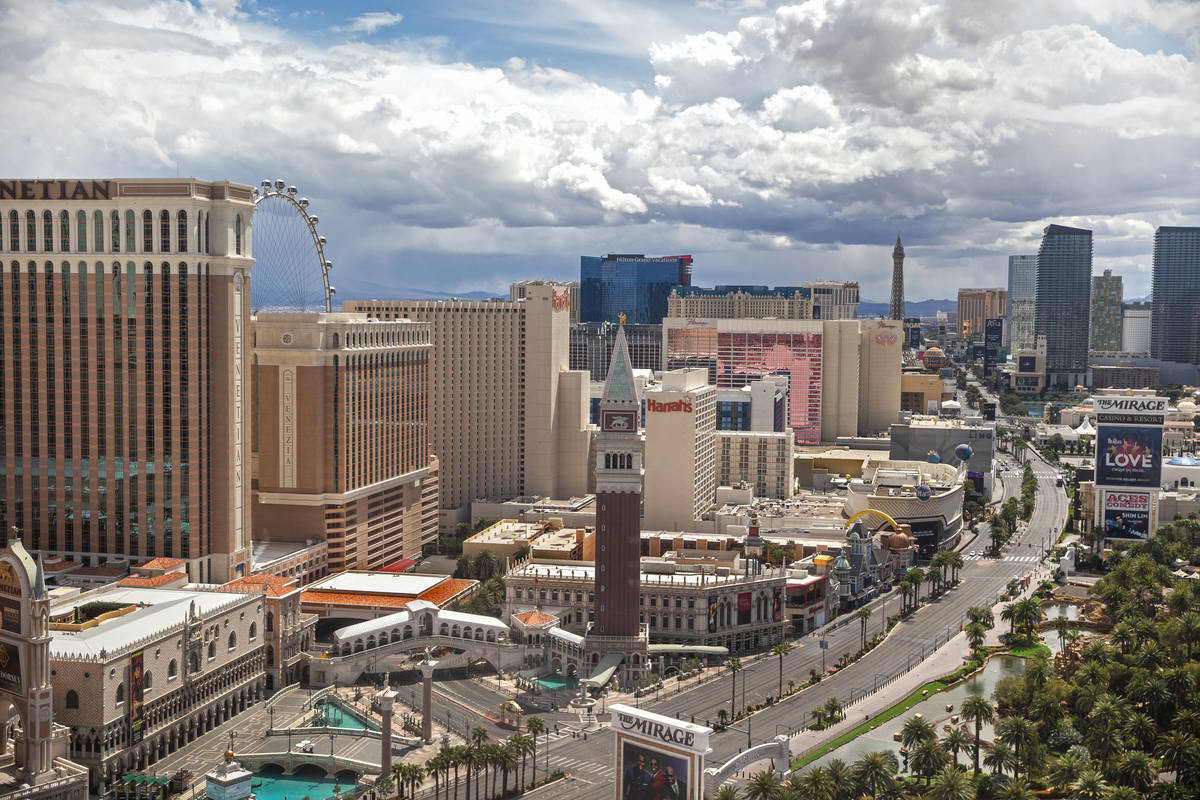Nevada gaming regulators considering casino capacity limits for reopenings
The state Gaming Control Board is considering restricting the number of people allowed inside a casino at one time.
Control Board Chairwoman Sandra Morgan on Monday said admission restrictions are among the policies the three-member board is considering as the gaming industry prepares to reopen properties after being financially clobbered by closures brought upon by the spread of the novel coronavirus pandemic.
“We want reduced occupancy to ensure compliance with social distancing,” Morgan said in a telephone interview.
She said the board has had ongoing conversations with several hotel-casinos and plans to consult with medical professionals before delivering any new directives on how to operate in the COVID-19 era.
Capacity limits
The only time occupancy has been a concern in the past is during special events, such as a property opening, and when that happens fire codes usually take effect. The board isn’t looking at a set occupancy level — just a policy that promotes social distancing.
Former Gaming Control Board Chairman Dennis Neilander, now a gaming attorney in the Carson City office of Kaempfer Crowell, said limiting capacity is common in states with riverboat casinos.
“This is done in all the riverboat states where they have admission charges and gates where you have to buy an admission ticket,” Neilander said. “Everyone has to go in and out of the same door.”
Neilander said if companies were directed to restrict admissions, the Nevada gaming regulator might have to temporarily suspend other regulations that direct companies to be open to the public.
“They’d have to make an exception and determine that ‘open to the public’ in this kind of environment means you can’t discriminate against anybody based on anything other than first in line gets in,” Neilander said.
Temperature checks
Las Vegas Sands Corp. and Wynn Resorts Ltd. each have announced they plan to use thermal cameras to conduct temperature checks on guests and staff, but Morgan said she doesn’t expect the state to mandate such monitors.
“I think they would be beneficial … but, look, it’s 90 degrees today,” she said. “If people are walking from outside into a property, would a thermal imaging camera actually capture whether or not someone is truly ill? Could that goal of making sure that people are not exhibiting COVID-like symptoms be achieved in another way? I would not be leaning toward that right now.”
In a policy statement the company made public April 19, Wynn Resorts Ltd. indicated it would install thermal cameras at entrances and the property would test people with a temperature over 100 degrees again in a private area, turning away those who still show high temperatures.
Las Vegas Sands announced a similar plan Tuesday, with thermal cameras installed at every resort entry point and those who have a temperature over 100.4 degrees to undergo a secondary screening. If they still show a high fever, they will “undergo further medical assessment and be directed to appropriate medical care,” the company said in a statement.
Mask wearing
Wynn Resorts and Las Vegas Sands also addressed mask wearing in their announcements. Wynn said guests will be asked to wear a mask, which will be provided by the resort, and Sands said guests are welcome to wear them but masks that hide the entire face would be prohibited.
Morgan did not address wearing masks inside casinos, but former Control Board Chairman A.G. Burnett said there shouldn’t be any problem with guests wearing masks from a regulatory standpoint as long as their eyes are visible.
“I’m not aware of any regulation or statute regarding what individuals wear on their faces,” Burnett said.
Masks shouldn’t cover eyes because the eyes are needed for facial recognition software to work properly.
‘Getting new information’
Former Control Board Chairwoman Becky Harris, now a gaming policy expert at UNLV’s International Center for Gaming Regulation, said it is a smart move for the board to wait on making regulations on health issues because “we just don’t know if it’s a good idea to have 3,500 people in a crowded nightclub at night dancing” at this time.
Another former Control Board member, Jeffrey Silver, now a gaming attorney in the Las Vegas office of Dickinson Wright, said the board needs to be wary of overregulating.
“They have to do things that are going to still maintain the balance between safety and sanitary conditions and fun,” Silver said. “Fun is still paramount in order to get people to come here. If they have everybody balled up with social distancing and unable to enjoy music and events and things like that, that’s a real potential problem for the industry to attract its customers back on a long-term basis.”
Silver also said it would be helpful if regulators and government leaders explained the rationale of some of their policy decisions.
The Review-Journal is owned by the family of Las Vegas Sands Corp. Chairman and CEO Sheldon Adelson.
Contact Richard N. Velotta at rvelotta@reviewjournal.com or 702-477-3893. Follow @RickVelotta on Twitter.


















